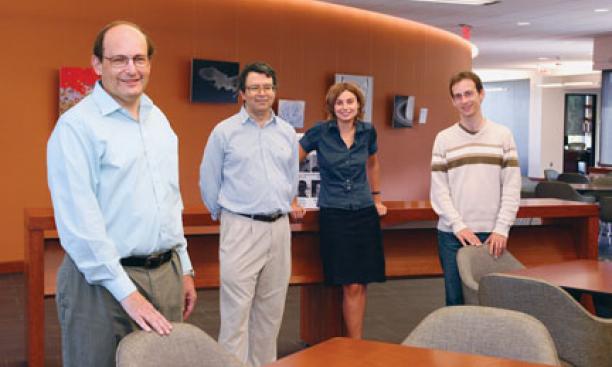

The Princeton Center for Theoretical Science is starting off with a bang — a big one — with a yearlong program on the origins of the universe.
The center’s goal is “to bring together theorists from across campus for periods of concentration with people working on similar problems, to begin new collaborations and come up with new questions to explore,” said Paul Steinhardt, the Albert Einstein Professor in Science and director of the center.
This year’s program — “Big Bang and Beyond” — will delve into how new theoretical and experimental tools, including the Large Hadron Collider in Switzerland, might further the understanding of what actually happened when the universe began.
Having first offered programs in 2006 as the Center for Theoretical Physics, the recently renamed center celebrated the opening of its new location on the fourth floor of Jadwin Hall Sept. 10. The site, made possible by alumni donations, includes offices for the eight faculty members and 10 postdoctoral researchers associated with the center, as well as shared spaces for collaboration.
More than 125 theorists from across campus, the Princeton Plasma Physics Laboratory, and the Geophysical Fluid Dynamics Laboratory mixed and mingled at the kickoff event — a testament to the center’s focus on interdisciplinary interaction.
President Tilghman reflected on Princeton’s “extraordinary and fabled history” in physical science and theory as she introduced the evening’s speaker, David Gross. The center, she said, will provide a fertile ground for discovery where future generations of theorists can follow in the footsteps of leaders such as Gross, who earned the 2004 Nobel Prize in physics for work done as a Princeton faculty member in 1973.
In addition to the Big Bang program, the center this year will sponsor a series of shorter events on recent scientific developments, including a spring workshop on global warming.
But more important than the events themselves, in Steinhardt’s mind, are the unexpected collaborations they launch.
